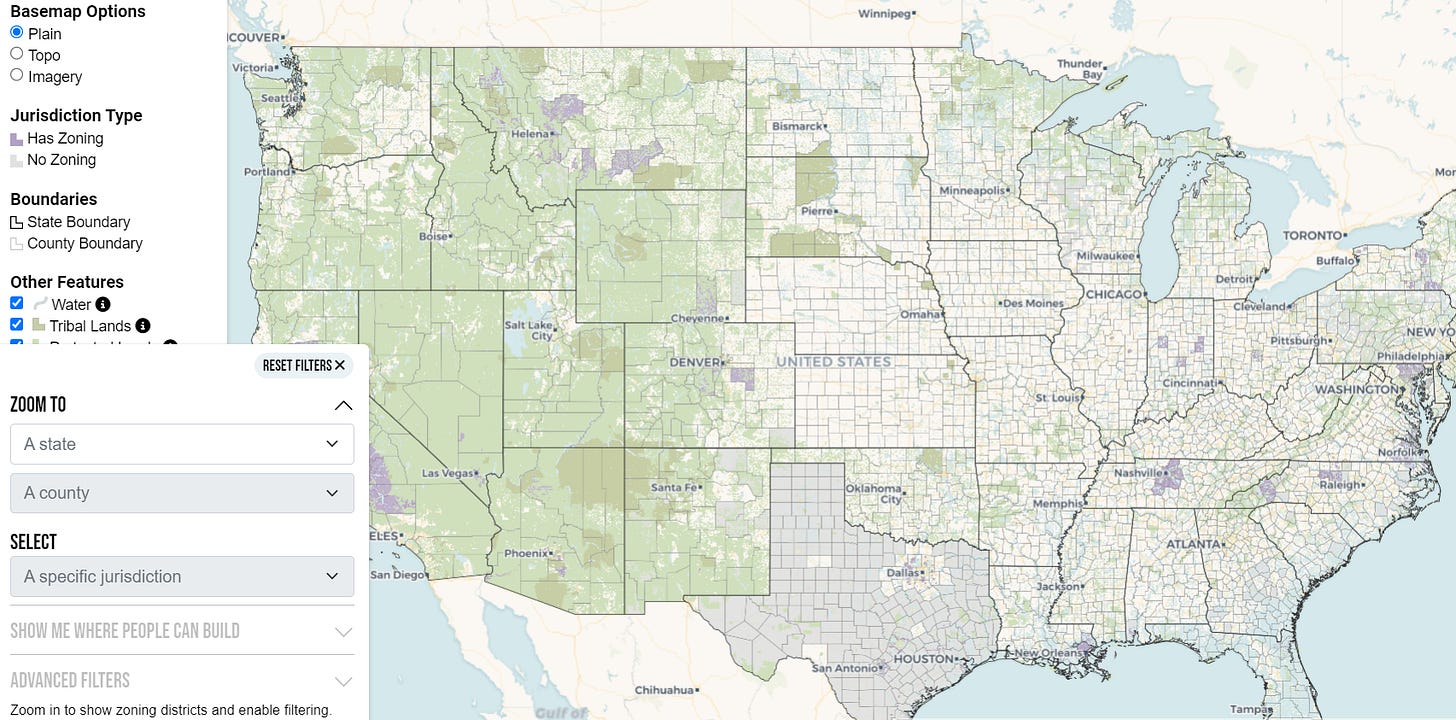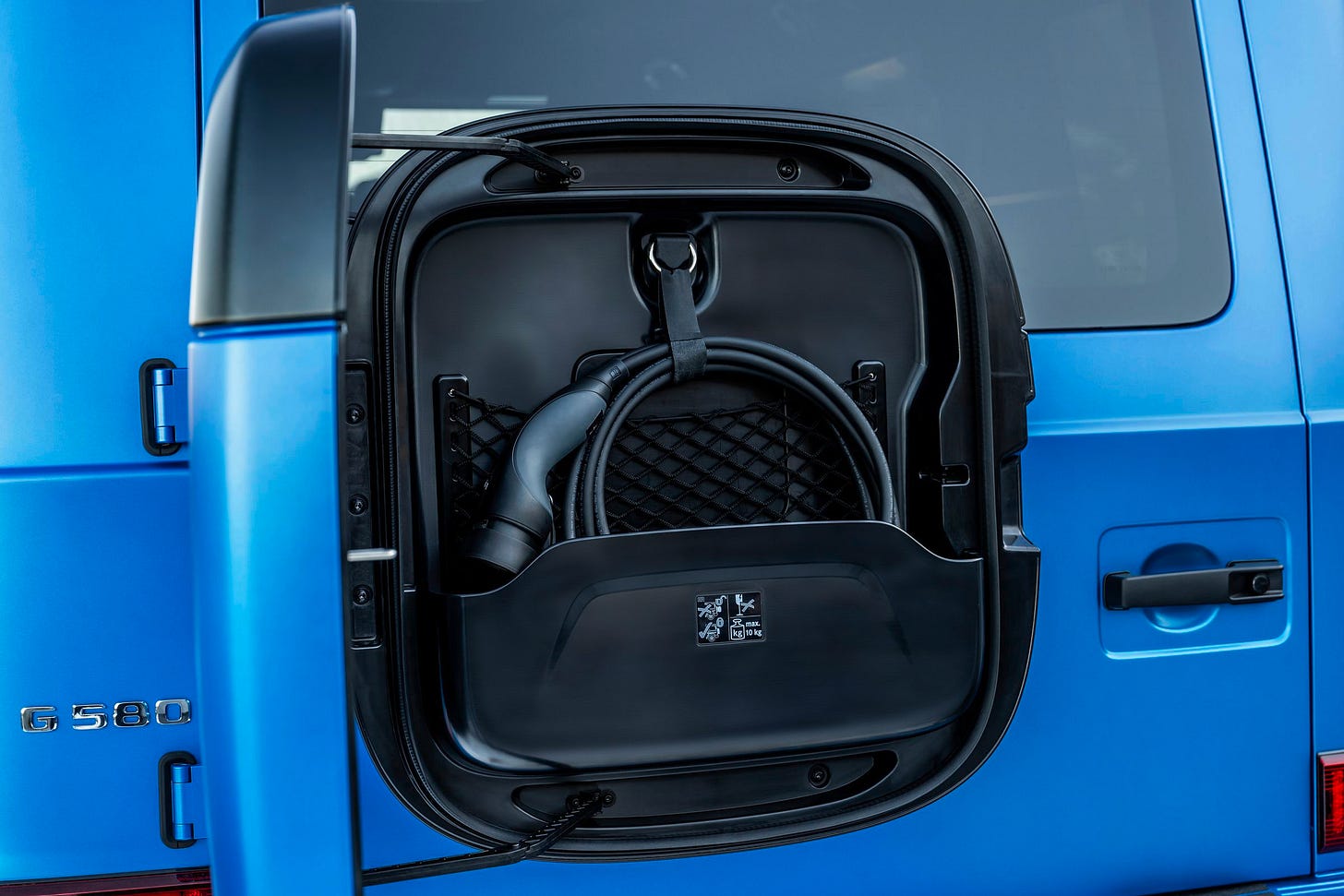Your Toolkit For City-Level Data. Plus, Let's Talk Climate Finance Models.
Vol 80
This newsletter aims to separate the signal from the noise for investment in all things sustainable transportation: Electrification, mode shift, active and public transit, and mobility aggregation, across both people and goods movement.
This week’s Deep Dive, at the bottom, is Your Toolkit for City-Level Data. And I’ve also got part 2 of the 3 things I want to talk to you about. Not over email, not over text, but in real time (ideally in person, but I will settle for a Zoom).
🌱STARTUP WATCH: Sustainable mobility startups (pre-seed or seed) to keep an eye on
Air Cahana (California, USA): Startup airline focused on decarbonized aviation
Circunomics (Germany): Battery value prediction software and used battery marketplace
Camion (United Kingdom): Software to manage EV charger siting
Dodona Analytics (United Kingdom): Also provides software to manage EV charger siting
Everest AI (Illinois, USA): Operational efficiency software for logistics carriers and brokers
EverCars (California, USA): Digital platform for buying and selling used EVs
Onto Technology (Oregon, USA): Manufacturing electrode materials via battery recycling
OpenGrid (Washington DC, USA): Battery-boosted DC fast charging network designed for fast deployment
Roboforge (California, USA): Manufacturing for multi-modal autonomous fleets
SirenOpt (California, USA): Sensor and software to improve yields in battery manufacturing
Volta Vate (Australia): Electrode-coated nanofiber separators to enhance battery performance
💰FUNDING: Capital raises from startups previously featured in Startup Watch
Zevero (Vol 18) was acquired by LEVELUP. This is the 13th exit in the database
General Galactic (Vol 74) raised a $1.9M pre-seed round from Box Group, Refractor, and others
Enjoying this newsletter? Share it with 3 people…
Let’s Talk. Yes, I Mean You. (Part 2 of 3)
For those of you who don’t know me, my LinkedIn should give you a decent sense of who I am. I want to spend more of my working hours on innovative new projects or roles that matter to me in the climate/cleantech space.
I am passionate about:
Getting More Family Offices and Foundations Off the Climate Sidelines (Part 1)
Creating Novel Financing Structures for Climate Investing (Today!)
Addressing The Micromobility Funding Paradox (Subsequent issue)
I would like these topics to be some part of what my future work focuses on. It might be in a consulting project, or evolve into a full-time job opportunity. To get there, my ask is that you reach out to me (or forward this to someone who might have ideas).
Topic #2: Creating Novel Financing Structures for Climate Investing
Venture capital began in the 1950’s. Project finance came of age in the 1970s and 1980s.
But 90% of the world's data was generated in the last two years alone. How can we take advantage of the insane amounts of data intelligence to not just refine investments in venture capital, project finance, etc., but to develop entirely new methods of funding for climate investing? If every financial investment is about the risk versus reward tradeoff, how are we not leveraging data to help us create entirely new constructs to help us manage risk and reward?
In my last job, one of the most rewarding things I worked on was creating a new type of fund in the capital stack for startups, the LACI Cleantech Debt Fund. And multiple players are trying to solve the first-of-a-kind (FOAK) project financing conundrum. But there’s got to be lots more new ways of deploying climate capital thanks to the inflow of data.
If this is something you have something to share (a hypothesis, a lead, etc.), please do reach out to me so that we can talk.
📰QUICK HITS: Notable news from the last two weeks
👩🏽⚖️Government, Policies & Cities
Property developers in LA are on tear building new apartment buildings without parking. You can either have abundant housing or you can have abundant parking, but you can’t have both.
LA Metro ridership growth has continued for 16 months straight. LA is one of the few US cities making a big bet on a public transit buildout and has aligned land-use policies (like embracing apartments without parking) accordingly.
State lawmakers allowed New York City to set speed limits at 20 miles per hour. It’s a tried and true approach across Europe.
US Trade Rep Katherine Tai says the US must do more to defend against the threat of EVs from China. The US, the EU, and carmakers like Tesla are justifiably worried about China’s lead in EVs, but proving any unfair advantage is harder.
Eight US states are looking at low carbon fuel standards. It would be great to have a state like New York or Michigan follow the lead set by California, Oregon, and Washington.
The UK is launching a self-driving bus program in Sunderland. Startup Aurrigo is providing the autonomy software.
The European Commission approved Stockholm’s plan to create a zone free of gasoline and diesel-powered cars. Stockholm will likely be the first city in the world, but with EU legal challenges sorted, lots of other European cities will consider following.
🏭 Corporates & Later Stage
The United Auto Workers (UAW) scored a massive win by organizing at VW’s Tennessee factory. The UAW is on a roll, and now they’re itching to organize Tesla, Rivian, Mercedes, Toyota, and others.
Tesla’s Cybertruck recall revealed a serious volume problem. Only 4K have been sold since deliveries began last Nov 30. Tesla told shareholders in 2023 to expect initial volumes of 250K and up to 500K.
Tesla’s annus horribilis continued with bad quarterly earnings. Musk saved the earnings call by noting that a low-cost Tesla is indeed still in the works. Whether it’s just a stripped-down Model 3 or an actual new vehicle may be one of the most fateful decisions for the company this decade.
Mercedes became the first automaker in the US to commercialize a car with level 3 autonomy. Expect an ever-more-public clash between Tesla’s “move fast and break things” approach and the “rule follower” approach of players like Mercedes and Waymo.
🔬Markets & Research
RMI launched a report on maritime decarbonization pathways. It predicts that Europe will become the hub for green methanol while the US and the global South will win with green ammonia.
🐣 Startups & Early Stage
VinFast, the Vietnamese EV startup, continues to struggle mightily. They are likely to last longer than Fisker.
Tritium, one of the leading EV charger manufacturers, is insolvent. This may prompt more customers to consider chargers from industrial giants like Siemens and ABB.
Brightline broke ground on its Vegas to So Cal high-speed rail line. For more on this project, see Vol 73.
BETA, the air taxi startup, released video showing its aircraft transitioning from vertical takeoff (like a helicopter) to forward propulsion (like a plane). Expect this technology to deploy first with the military, then cargo applications, and finally commercial passengers.
Oonee was selected by the City of Minneapolis to run their bike parking and charging program. This is the kind of lighter mobility infrastructure that cities need a lot more of.
Uber spinoff Serve Robotics, maker of sidewalk delivery robots, is now publicly traded. The company booked $200K in revenue last year; the cost of NASDAQ reporting requirements might exceed revenue for a few years.
Not yet a subscriber?
DEEP DIVE: Your Toolkit for City-Level Data
To paraphrase Uber founder Travis Kalanick, mobility is about moving both bits and atoms. The bits (aka software) scale at zero marginal cost. The atoms (aka stuff in the real world)? Not so much. So the name of the game can often be developing sufficient data about real world conditions to understand how and when to profitably move the atoms, whether people or goods. And in the US, 80% of that takes place in cities, so having robust city-level data is key. Here are a few free shortcuts for figuring out cities.
Zoning: The National Zoning Atlas. 30,000 local governments across the US have zoning laws that touch almost every aspect of transportation. And, in many cases, finding out what’s permitted use is a painstaking process of researching city by city. The National Zoning Atlas is a project to create a national harmonized database of zoning rules.
Local Government Deliberations: CivicSearch. Sometimes the answer for whether something is allowed is “it depends” and requires some level of public deliberation. Thankfully CivicSearch is capturing those public hearings for you, letting you know whether residents in Topeka are up in arms about EV chargers or whether Denver residents are frustrated by Amazon delivery vans blocking traffic. You can search by whatever term you like to see where it’s being mentioned in local government meetings nationwide.
Transit: TransitLand is a great source for a unified view of the state of transit. Also, check out Transit Explorer and OpenRailwayMap.
Mobility Datasets: The Mobility Database. 2,000 datasets globally, all reporting on the GTFS, which stands for General Transit Feed Specification/Google Transit Feed Specification,
Maps: OpenStreetMap. Nobody likes paying licensing fees to Google Maps if they don’t have to. For a refresher on the maps wars, see Vol 62.
Amenities reachable by walking, biking, and accessible transit: Close City, built on top of OpenStreetMap, lets you know how quickly residents can get to over 20 different destination types (pre-schools, dentists) within certain time constraints across walking, biking and transit.
If you have other free, city-level data tools for people and goods movement, hit reply to this email.
Enjoyed this newsletter? Share it with 3 people..








